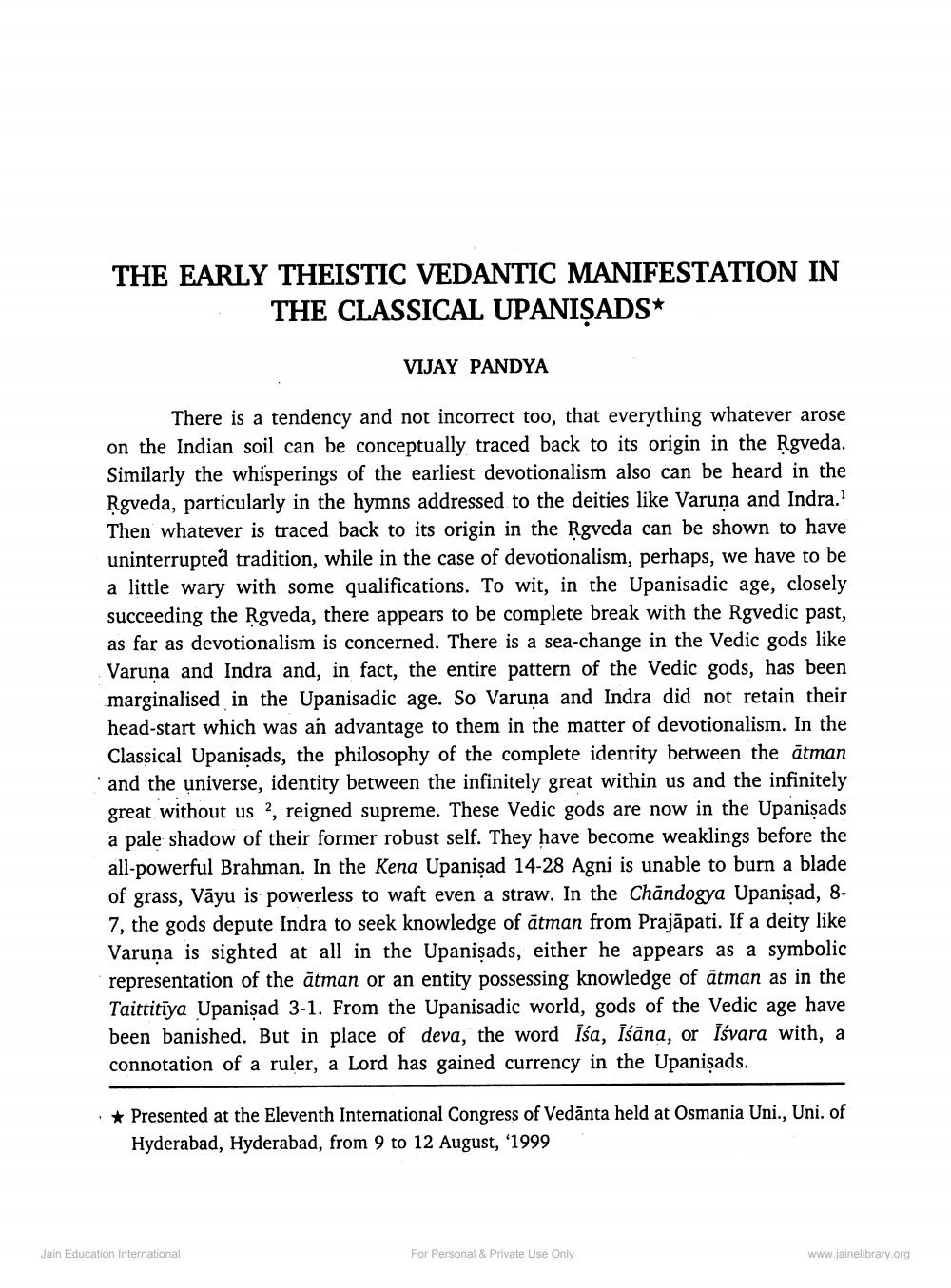Book Title: Sambodhi 2003 Vol 26 Author(s): Jitendra B Shah, N M Kansara Publisher: L D Indology Ahmedabad View full book textPage 7
________________ THE EARLY THEISTIC VEDANTIC MANIFESTATION IN THE CLASSICAL UPANIŞADS* VIJAY PANDYA There is a tendency and not incorrect too, that everything whatever arose on the Indian soil can be conceptually traced back to its origin in the Rgveda. Similarly the whisperings of the earliest devotionalism also can be heard in the Rgveda, particularly in the hymns addressed to the deities like Varuna and Indra. Then whatever is traced back to its origin in the Rgveda can be shown to have uninterrupted tradition, while in the case of devotionalism, perhaps, we have to be ittle wary with some qualifications. To wit, in the Upanisadic age, closely succeeding the Rgveda, there appears to be complete break with the Rgvedic past, as far as devotionalism is concerned. There is a sea-change in the Vedic gods like Varuna and Indra and, in fact, the entire pattern of the Vedic gods, has been marginalised in the Upanisadic age. So Varuna and Indra did not retain their head-start which was an advantage to them in the matter of devotionalism. In the Classical Upanişads, the philosophy of the complete identity between the atman and the universe, identity between the infinitely great within us and the infinitely great without us 2, reigned supreme. These Vedic gods are now in the Upanişads a pale shadow of their former robust self. They have become weaklings before the all-powerful Brahman. In the Kena Upanisad 14-28 Agni is unable to burn a blade of grass, Vāyu is powerless to waft even a straw. In the Chandogya Upanisad, 87, the gods depute Indra to seek knowledge of ātman from Prajāpati. If a deity like Varuņa is sighted at all in the Upanişads, either he appears as a symbolic representation of the ātman or an entity possessing knowledge of atman as in the Taittitīya Upanisad 3-1. From the Upanisadic world, gods of the Vedic age have been banished. But in place of deva, the word Îśa, īśāna, or Iśvara with, a connotation of a ruler, a Lord has gained currency in the Upanişads. * Presented at the Eleventh International Congress of Vedānta held at Osmania Uni., Uni. of Hyderabad, Hyderabad, from 9 to 12 August, '1999 Jain Education International For Personal & Private Use Only www.jainelibrary.orgPage Navigation
1 ... 5 6 7 8 9 10 11 12 13 14 15 16 17 18 19 20 21 22 23 24 25 26 27 28 29 30 31 32 33 34 35 36 37 38 39 40 41 42 43 44 45 46 47 48 49 50 51 52 53 54 55 56 57 58 59 60 61 62 63 64 65 66 67 68 69 70 71 72 ... 184
